Lede
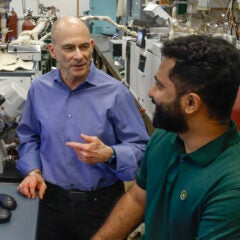
The University of Illinois Chicago received $485.5 million in research funding during the 2024 fiscal year, led by significant gains in the College of Engineering and College of Education. Awards from federal, state and private sources sponsored nearly 3,400 projects on research topics ranging from maternal health, Latino humanities and the environmental drivers of disease to sustainable aviation fuels, electric grids for renewable energy and quantum science education.
By The Numbers
-
$ 486 M in sponsored awards received.
-
$ 453 M in research expenditures.
-
3,400 research awards received.
By The Numbers 2
-
$ 196 M in research funding in quarter one of fiscal year 2025.
-
26 % funding increase since 2019.
-
75 % of total funding came from federal sponsors.
Chancellor Quote
“UIC continues to succeed in our joint pursuit of access and excellence. Our faculty are competing their ideas nationally and internationally — and winning. What makes our research portfolio so special is the reflected deep commitment to local and global impact. This vibrant research community also offers our students abundant opportunities to engage in research of all types, advancing their careers while making a meaningful difference in the world.”
| Chancellor, University of Illinois Chicago
Funding sources

UIC received 75% of its research funding from federal sponsors, led by $205.4 million from the National Institutes of Health.
The National Science Foundation awarded UIC $35.3 million — a 10.5% increase over fiscal year 2023. U.S Department of Energy funding also increased by 7.6% to $16.7 million.
Other top government sponsors included the U.S. Department of Defense ($13.2 million) and the State of Illinois ($45.8 million). Private sponsors, including the Andrew W. Mellon Foundation and the Patient-Centered Outcomes Research Institute, awarded $66.3 million to UIC for research.
In addition to the $485.5 million in research funding, the UIC Office of Technology Management reported $24.5 million in revenue from 343 active licenses of its intellectual property in the 2024 fiscal year.
VCR quote
“UIC continues to lead in health sciences research while also expanding our initiatives in engineering, physical sciences and the humanities. These broad research strengths position UIC to conduct the interdisciplinary, collaborative explorations needed to address today’s pressing scientific and societal challenges.”
| Vice Chancellor for Research, University of Illinois Chicago
Featured Projects
New UIC projects funded in fiscal year 2024 included:
Maternal Health
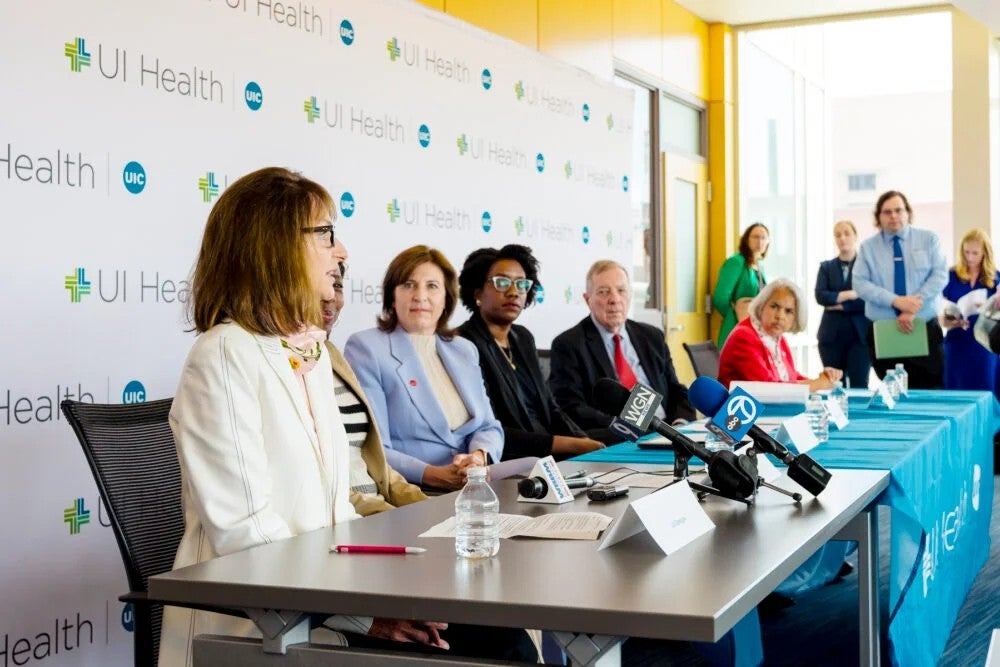
Researchers from the University of Illinois Chicago will attempt to reduce health inequities in maternal morbidity and mortality, thanks to a $11 million, six-year grant from the Eunice Kennedy Shriver National Institute of Child Health and Human Development.
The Maternal Health Research Center of Excellence will conduct new scientific studies, train and develop a diverse, interdisciplinary research workforce and partner with communities to promote maternal health equity.
Its research will focus on social epigenetics — the mechanisms by which environment and exposures change genes and biology in a way that increases the risk for disease, poor health and mental health and ultimately contribute to maternal health disparities.
Investigators: Dr. Rachel Caskey, Anne Elizabeth Glassgow, Sage Kim, Arden Handler, Kenya McRae
New fuels
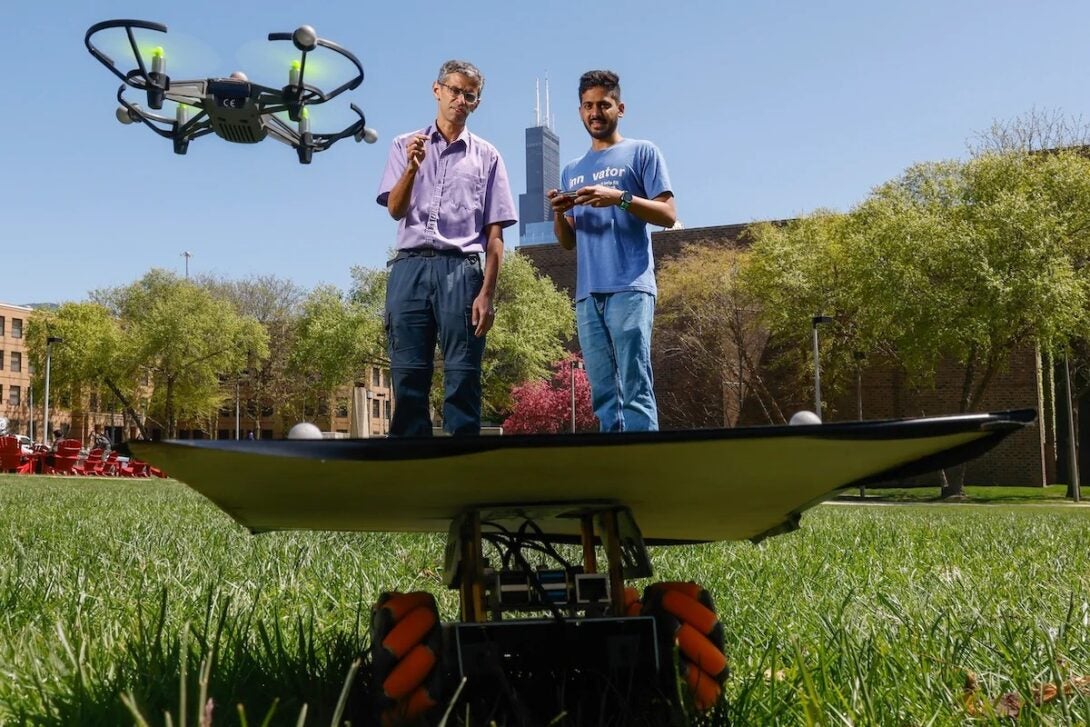
A new $6 million collaborative agreement between the U.S. Army Research Laboratory and engineers from the University of Illinois Chicago will develop fuels and technologies for sustainable aviation and autonomous vehicles.
Their work will include adapting a fuel-sensor system to work with an emerging class of sustainable aviation fuels and developing a system that recharges unmanned aerial vehicles in the field without the need for human involvement. These innovations could help commercial aviation transition to sustainable fuels and improve the use of drones for package delivery and rescue operations.
Investigators: Kenneth Brezinsky, Patrick Lynch, Pranav Bhounsule
Latino history
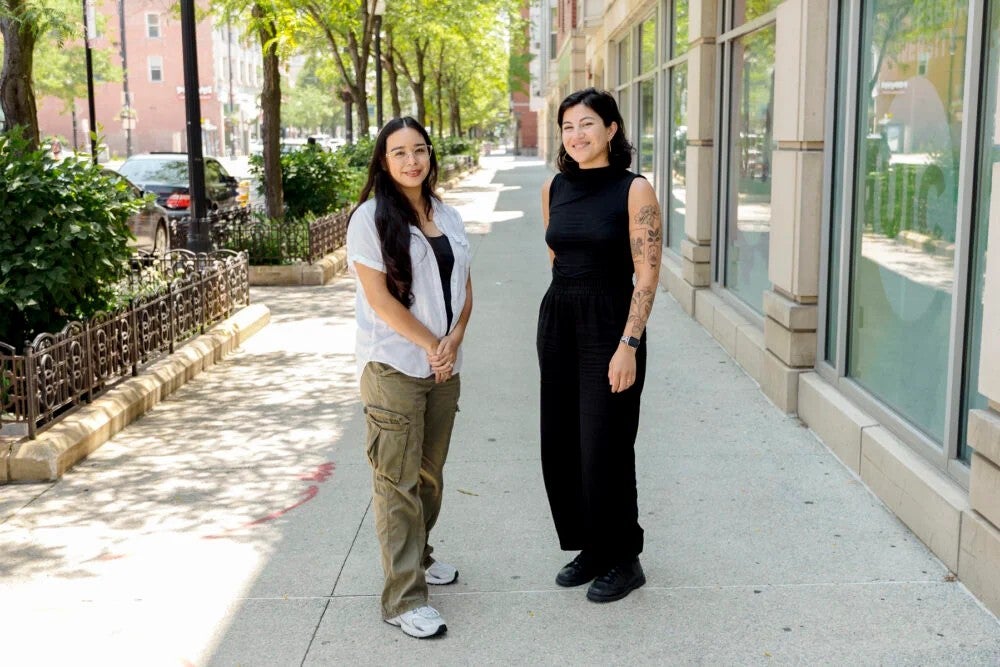
Thanks to a $5 million grant from the Andrew W. Mellon Foundation, the University of Illinois Chicago-led initiative Crossing Latinidades will continue for another three years. The research initiative supports Latino humanities faculty and doctoral students. UIC and the other 19 universities in the Alliance of Hispanic Serving Research Universities can choose two graduate students each year to participate in the program.
The alliance is comprised of Hispanic-serving institutions with a Research 1 designation — top-tier doctoral universities with very high-level research activity, as measured by the Carnegie Classification of Institutions of Higher Education. With this program, Research 1 institutions can be national leaders in increasing the number of humanities doctoral students and faculty in the field of Latino, Latina and Latinx studies, while supporting graduate scholarship and emerging areas of inquiry and developing a new cohort of scholars and future academics to advance the field.
Lead Investigator: María de los Ángeles Torres
Quantum engineers
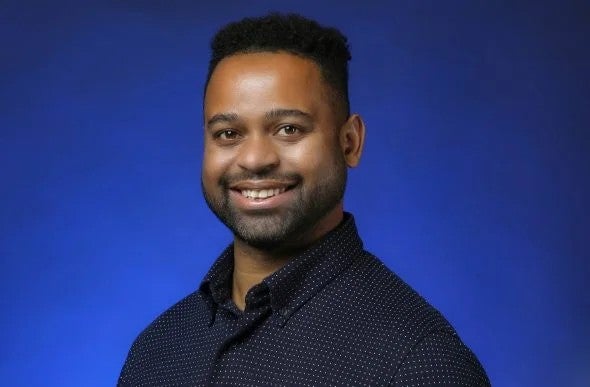
The University of Illinois Chicago is leading a consortium to bring underrepresented populations into quantum science careers. The consortium will be made up of Historically Black Colleges and Universities, Hispanic-Serving Institutions and institutions serving predominantly female students.
Representatives from each institution will collaboratively construct an undergraduate curriculum and educational materials for quantum engineering and then adapt their shared resources for the needs of their own students and faculty. At UIC, this initiative will support the creation of a new quantum engineering track under the engineering physics major, as well as a new Master of Science in quantum engineering.
Consortium leaders: Thomas A. Searles, Zizwe Chase, Daniela Tuninetti.
Multi-omics
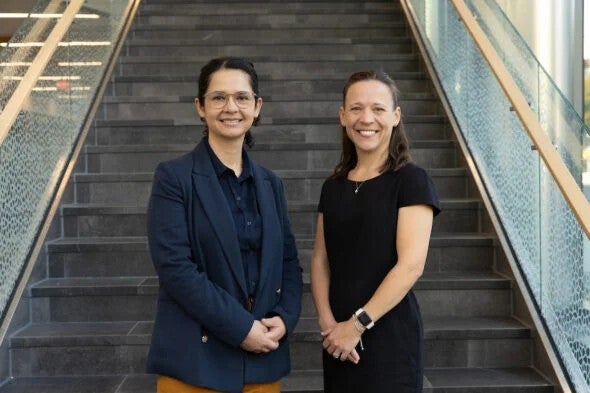
UIC will serve as one of six study sites in the new $50 million Multi-Omics for Health and Disease Consortium, recently announced by the NIH. The UIC site will focus on developing and applying new molecular technologies and data science strategies to understand the cellular changes linking adverse environmental exposures to diabetes and chronic kidney disease, following a cohort of 300 racially and ethnically diverse patients.
The UIC team will look for novel molecular mechanisms responsible for the initiation of kidney disease in patients with diabetes and the progression of this condition to end-stage disease.
UIC Team: Tanika Kelly, Dr. Ana Ricardo
Power grids
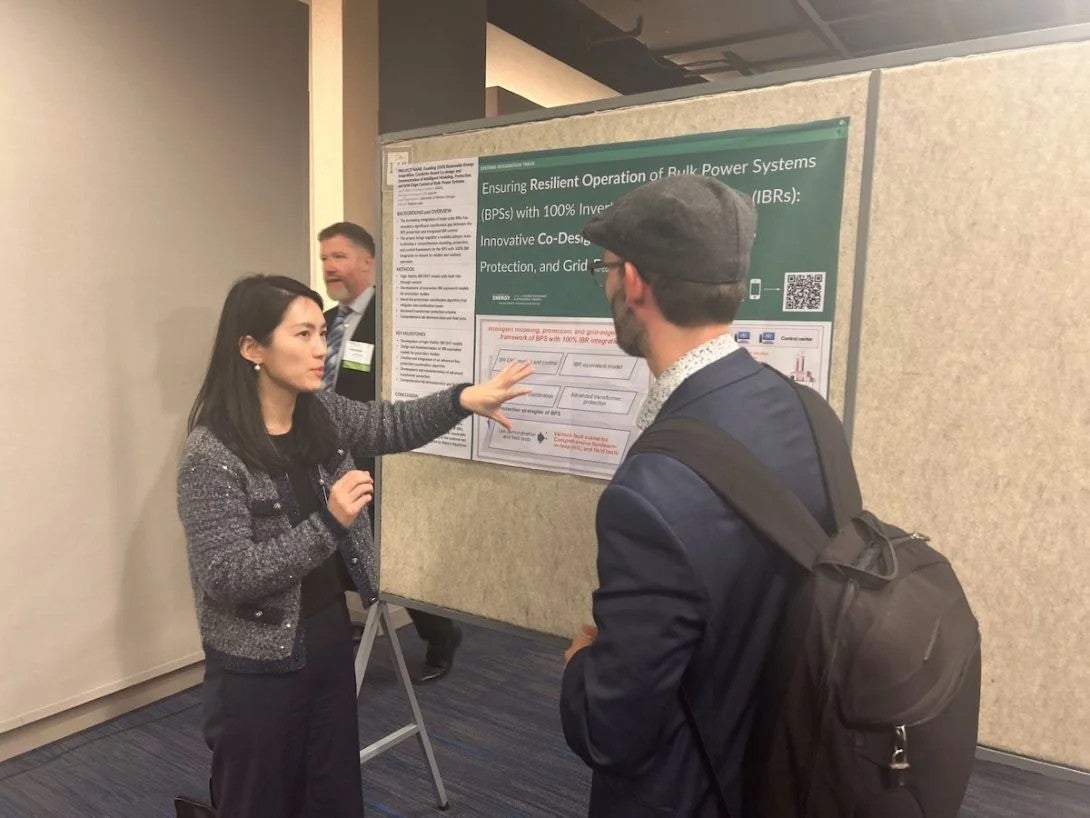
With a $4.1 million grant from the U.S. Department of Energy, UIC researchers are developing power grids that integrate renewable energy from solar, wind and battery storage. This project is a part of a larger effort to upgrade the country’s aging electric grid and to move toward a future powered by renewable energy.
The UIC team will also collaborate with world-class manufacturing companies: General Electric, Siemens Industry, Schweitzer Engineering Laboratories, and S&C Electric Company; three major power utilities: ComEd, AES, and Eversource Energy; a top-tier national lab, the National Renewable Energy Laboratory; and two prominent regional transmission organizations, ISO-New England and California ISO.
Lead Investigator: Lina He
Infographic 2

The College of Medicine led all UIC colleges, with $196.5 million in total funding. It was followed by the College of Engineering ($50.5 million), the College of Liberal Arts and Sciences ($39.4 million), the School of Public Health ($32.9 million), the College of Applied Health Sciences ($22.5 million) and the Retzky College of Pharmacy ($21.1 million).
Five UIC researchers also received National Science Foundation CAREER awards, a prestigious grant for early career development: Osama Khalil, Nicole Looper and Marcus Michelen from the department of mathematics, statistics and computer science in the College of Liberal Arts and Sciences; and Myunghee Kim and Zhangli Peng, from the College of Engineering.
Highest funded faculty
Read about the UIC faculty members who received the most research funding in 2024.
Daviglius

Martha Daviglus, MD, PhD
Professor of Medicine, Director of the Institute for Minority Health Research, Associate Vice Chancellor for Research
An alumna of UIC (class of 1995), Dr. Daviglus moved from Northwestern University Feinberg School of Medicine to her alma mater (UIC) in June 2012. Her research activities have concentrated on the epidemiology and prevention of cardiovascular diseases and minority health disparities, for which she has received numerous grants and awards, including the Established Investigator Award from the American Heart Association.
Dr. Daviglus has had continuous funding from the National Institutes of Health since 1995 and has been involved in investigating associations of traditional cardiovascular and nutritional risk factors with long-term coronary and cardiovascular morbidity (clinical and subclinical) and mortality in middle-aged and older men and women. Dr. Daviglus’ other research interests focus on the benefits in older age, in terms of health care costs and health-related quality of life, of favorable (low risk) cardiovascular risk profile earlier in life, and on women’s health.
Dr. Daviglus is the principal investigator on a number of longitudinal studies including on the Hispanic Community Health Study/ Study of Latinos (HCHS/SOL) Chicago Field Center, the Chicago Healthy Aging Study, and the UIC Cohort of Patients, Family, and Friends. She also serves as Director of a National Heart, Lung, and Blood Institute Research Training Program on Cardiovascular Epidemiology and Prevention.
Caskey

Rachel Caskey, MD, MAPP
Earl M. Bane Professor and Head, Department of Medicine; Professor of Medicine and Pediatrics; Department of Medicine, Division of Academic Internal Medicine and Geriatrics
Dr. Caskey is a national leader in the field of maternal and child health. She combines her clinical interest in women’s health with her public health interest in population health to develop a research platform focused on health care delivery through scalable behavior change interventions. She is a health services researcher focused on novel system-level changes to health care settings to improve outcomes for women and children; with an emphasis on improving access to care for postpartum women and reducing maternal morbidity and mortality. She is the principal investigator on several federally funded grants.
Dr. Caskey has an appointment at UIC’s school of public health in the Division of Maternal Child Health where she has taught core courses on health outcomes. She is a member of the UIC Cancer Center where she collaborates on efforts to reduce the incidence of cervical cancer. Dr. Caskey has considerable experience working with the State of Illinois, City of Chicago, and the state Medicaid office. She is often asked to provide content expertise on state Medicaid healthcare policy and pharmacy coverage policy decisions. She partners with the Chicago Department of Public Health (CDPH) and the Illinois Department of Public Health (IDPH) on several large research and public health programing efforts. Finally, she has been invited to sit on several city- and state-wide task forces targeting health disparities and prevention activities.
Education and mentorship remain a core pillar of her career. She co-leads the NIH-funded Precision Lifestyle Medicine and Translation Research (PREMIER) T32 postdoctoral training program. She was a residency program director for over seven years and mentors junior faculty and trainees and of all levels. She has received several awards for her teaching and mentorship.
She received her MD from Jefferson Medical College in Philadelphia, PA and completed a combined internal medicine and pediatrics residency program at the University of Michigan in Ann Arbor, MI. After residency, Dr. Caskey completed a research fellowship at the University of Chicago, and a master’s in public policy (healthcare policy track) at the Harris School of Public Policy at the University of Chicago. She has been on faculty at UIC for over 15 years and has held several leadership roles at UIC. In February 2024 she was appointed Head of the Department of Medicine.
Krishnan
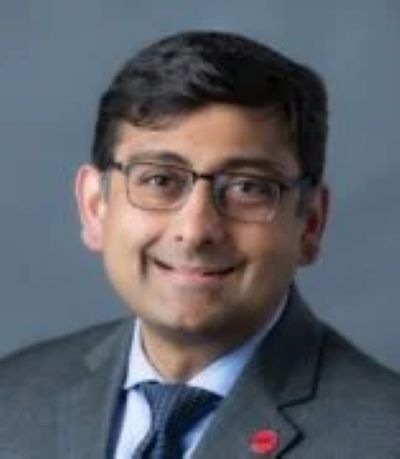
Jerry Krishnan, MD, PhD
Professor of Medicine and Public Health; Associate Vice Chancellor for Population Health Sciences; Department of Medicine, Division of Pulmonary, Critical Care, Sleep and Allergy
Dr. Jerry Krishnan is a professor of medicine and public health at UIC and serves as Associate Vice Chancellor for Population Health Sciences. He has expertise in the care of patients with asthma, chronic obstructive pulmonary disease (COPD) and other complex obstructive lung disorders.
Dr. Krishnan is an investigator in Patient Centered Outcomes Research, American Lung Association and National Institutes of Health (NIH)-sponsored research networks and is conducting studies to identify new treatment strategies for patients with asthma, COPD and COVID-19. He serves as a faculty member in the American Thoracic Society Methods in Epidemiologic, Clinical, and Operations Research (MECOR) program and on the board of directors for the Global Initiative for Asthma (GINA) and the Respiratory Health Association. He is also on the Medical and Scientific Advisory Committee for the COPD Foundation.
Dr. Krishnan has authored more than 250 peer-reviewed publications in major medical journals, including JAMA, the New England Journal of Medicine and the American Journal of Respiratory and Critical Care Medicine.
Torres

María de los Angeles Torres, PhD
UIC and LAS Distinguished Professor; LALS
María de Los Angeles Torres is a Professor of Latin American and Latino Studies at the University of Illinois Chicago. She received her PhD from the University of Michigan, Ann Arbor. She taught political science at DePaul University in Chicago from 1987 to 2005. She was a faculty Associate at Notre Dame’s Institute for Latino Studies, 2000-2001 and was a research fellow at Chapin Hall University of Chicago 2002.
She is the author of two books, The Lost Apple: Operation Pedro Pan, Cuban Children in the US and the Promise of a Better Future. Boston, Mass: Beacon Press, 2004 and In the Land of Mirrors: The Politics of Cuban Exiles in the United States. Ann Arbor, Michigan: University of Michigan Press, 1999. She is co-author of Citizens in the Present: Youth Civic Engagement in the Americas, University of Illinois Press, 2013.
She has published chapters and essays on issues of diversity, US/Cuba relations and immigration. Currently she is working on a manuscript titled The Elusive Present: Time and Politics in Cuban Thought.
Main

Catherine Main
Senior Lecturer & Director of Early Childhood Education; Coordinator of MEd Early Childhood Education; Educational Psychology
Catherine Main is a senior lecturer and Director of Early Childhood Education in the College of Education and a visiting scholar with the Institute of Government and Public Affairs (IGPA) at the University of Illinois.
She has more than 30 years of work on behalf of young children and their families in the state of Illinois. Her work at the UIC College of Education has included innovative and responsive program development and coordination in Early Childhood Education. Main designed and developed a Blended Early Childhood/Early Childhood Special Education program and an Early Childhood Alternative Licensure program. Both programs were the first of their kind approved by the Illinois State Board of Education (ISBE) and both reflect a focused, much needed response to specific demands for early childhood teachers in Chicago.
She is the principal investigator (PI) on a U.S. Department of Education (DOE) Teacher Quality Partnership (TQP) grant and leading the Illinois Early Childhood Apprenticeship Pilot project in partnership with the Illinois Department of Human Service (IDHS). She regularly presents her work at national conferences and as an invited speaker at local conferences.
She is the former president of the Illinois Association for Early Childhood Teacher Educators (ILAECTE) and a member of the board for Chicago Youth Centers.
Mermelstein

Robin Mermelstein, PhD
LAS Distinguished Professor and IHRP Director; Clinical & Community and Applied Developmental Psychology
Dr. Robin Mermelstein, a professor of psychology and distinguished professor of the College of Liberal Arts and Sciences, directs the Institute for Health Research and Policy at the University of Illinois at Chicago. She also is a clinical professor of community health sciences in the UIC School of Public Health, an assistant dean of the UIC College of Medicine, and the co-principal director of the UIC Center for Clinical and Translational Science.
Her research interests fall broadly in the area of tobacco use, with studies ranging from longitudinal examinations of the etiology of youth smoking to cessation interventions for adult smokers.
Since the mid 1990s, Dr. Mermelstein has been the principal investigator of a series of studies, including two consecutive program projects funded by the National Cancer Institute, to investigate trajectories of smoking patterns among adolescents and young adults, with a focus on social and emotional contextual factors.
In addition, she has been funded by the Centers for Disease Control and Prevention to examine factors related to youth smoking, and by the National Heart, Lung, and Blood Institute and NCI for studies of adult smoking cessation. Other areas of research focus include health behaviors of young adults and motivational interventions to increase smoking cessation.
Schraeder
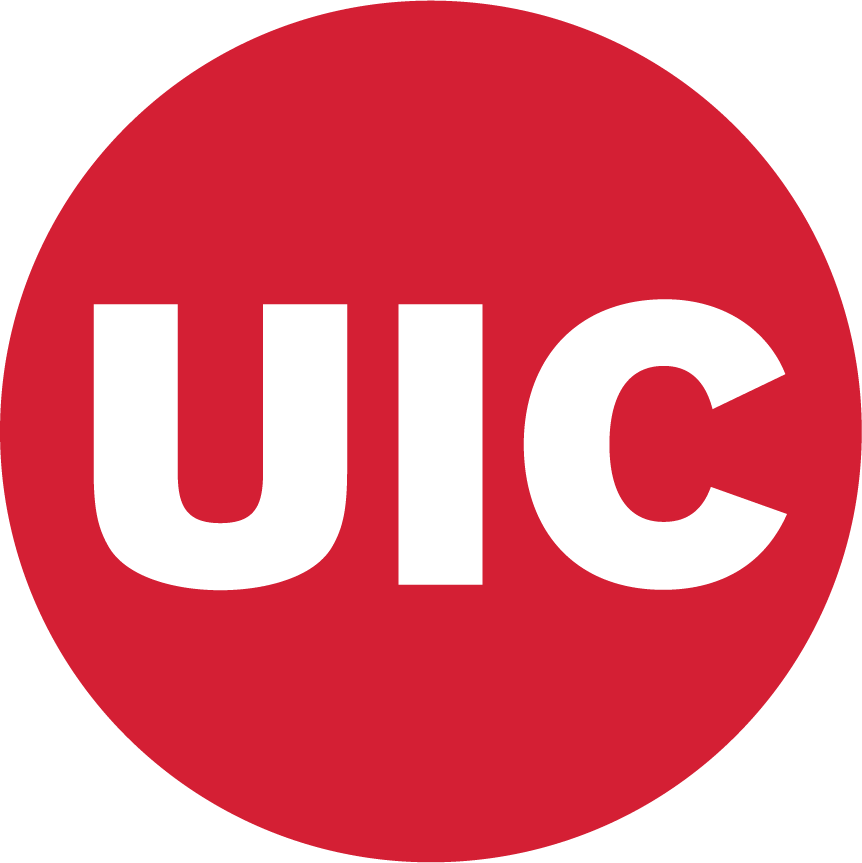
Cheryl Schraeder, RN, PhD, FAAN
Director, Policy and Practice Initiatives; Clinical Associate Professor; Office of Practice and Community Partnerships
Cheryl Schraeder is a Clinical Associate Professor and the Director of Policy and Practice Initiatives, Institute for Healthcare Innovation, at the College of Nursing at the University of Illinois in Chicago. She has been the principal investigator for governmental health care agencies and private foundation demonstrations and projects with under-resourced populations, focusing on people with chronic illnesses and older adults.
Brezinsky

Kenneth Brezinsky, PhD
Professor and James P. Hartnett Professor of Energy Engineering, Department of Mechanical and Industrial Engineering
Kenneth Brezinsky is a professor and James P. Hartnett Professor of Energy Engineering in UIC’s Department of Mechanical and Industrial Engineering, and also serves as the director of the High-Pressure Shock Tube Lab, where his research focuses on the kinetics of combustion chemistry.
He has received more than $22 million in government funding from more than 36 agencies, including the National Science Foundation, the Department of Energy, the National Aeronautics and Space Administration, the Air Force Office of Scientific Research, the Army Research Office and the Army Research Laboratory. He also supervises several doctoral students and post-doctoral associates in his lab.
In 2024, Brezinsky was recognized as a University Scholar, an award which honors and rewards outstanding faculty members who have demonstrated superior performance in scholarly activities in research and teaching and who show great promise for future achievements.
Vaughan

Andrea Vaughan, PhD
Visiting Assistant Research Professor; Interim Director, Center for Literacy
Andrea Vaughan is a researcher, organizational leader and educator devoted to understanding and deepening learners’ experiences across in- and out-of-school contexts. She is the Interim Director of the Center for Literacy (CFL) and a Visiting Research Assistant Professor in the College of Education at the University of Illinois at Chicago.
Dr. Vaughan’s research explores how young people write and share their writing and considers how teachers might develop curriculum to support youth’s literacy development and practice. Using primarily qualitative methods, Dr. Vaughan studies the writing of young people in the contexts in which they live and learn, including schools, community spaces and informal settings. She is particularly interested in how understanding youth’s writing outside of school might inform more engaging, equitable and humanizing curricula and opportunities within school-based literacy classrooms. Her research has appeared or is forthcoming in journals including the Journal of Literacy Research, Written Communication, Language Arts and the Journal of Adolescent and Adult Literacy.
At the College of Education, Dr. Vaughan has taught elective and required courses for graduates and undergraduates on disciplinary literacies, out-of-school literacies and literacy teaching methods.
Dr. Vaughan also serves as the Interim Director of the Center for Literacy, the community engagement arm of UIC’s College of Education, where she leads research, programming, partnerships and operations. Dr. Vaughan deeply values the opportunity to put research into practice to make a difference in the lives of Chicago families, and to learn with students, community partners and a dedicated team of educators every day.
Hairston

Creasie Finney Hairston, PhD
Dean and Professor; Director, Jane Addams Center for Social Policy and Research
Dean Creasie Finney Hairston is a pioneer in the development of family programs for correctional populations and has conducted research and written extensively on the impact of incarceration on families and communities. Her publications on social policies and services affecting children and families living in poverty appear in leading academic and professional journals and texts and in the popular press. In addition, Hairston leads the Jane Addams Center for Social Policy and Research and serves as principal investigator on the UIC Behavioral Health Crisis Hub, among other research projects.
Her research focuses on the impact of incarceration and community reentry on families and children, as well as social welfare policies and services for aging populations.